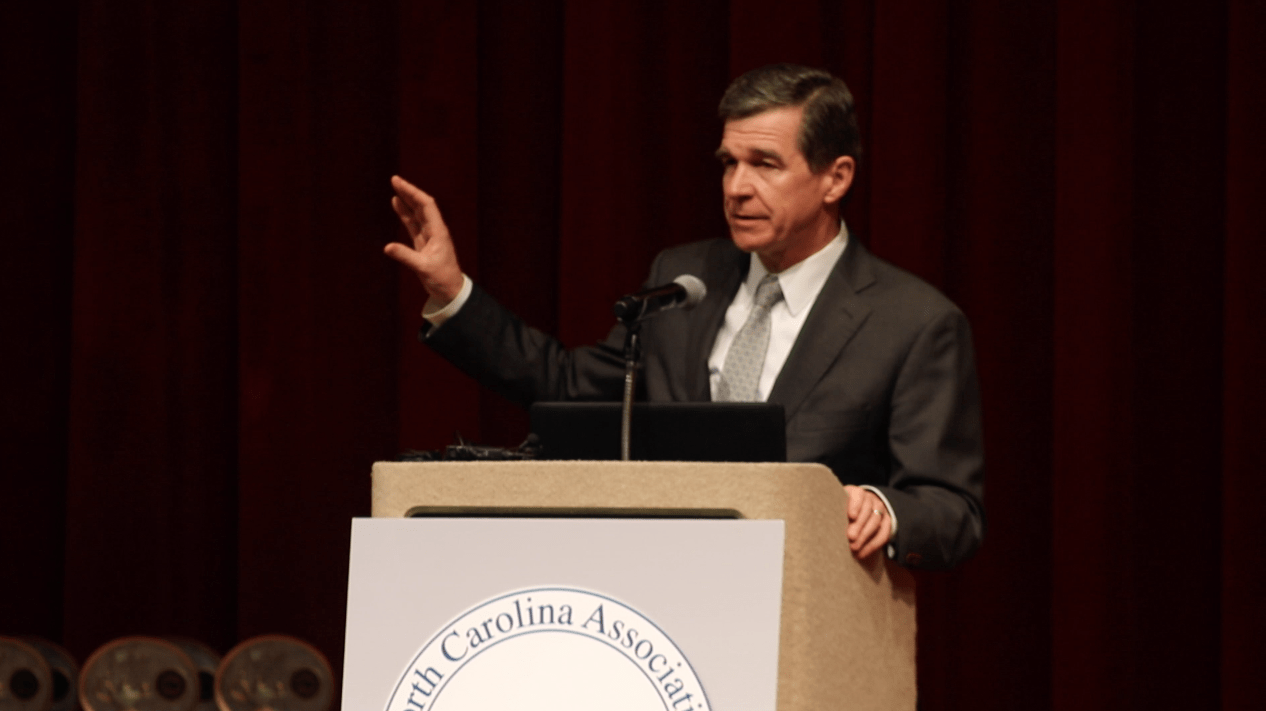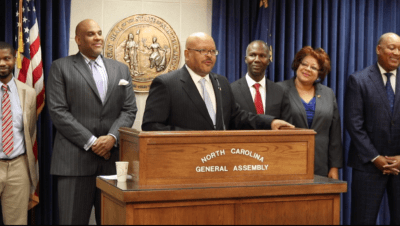Governor Roy Cooper released his teacher salary schedule Tuesday, outlining the details of his plan to raise teacher pay by five percent over each of the next two years.
Cooper briefly mentioned the schedule during a speech he gave to attendees of the North Carolina Middle School Conference in Greensboro (video below). He emphasized that teachers with every level of experience would see raises under his proposal which he said is unlike the legislature’s teacher pay plans in recent years.
“One thing I know is that there have been some efforts to increase pay of starting teachers over the last few years, but veteran teachers often have been excluded,” Cooper said. “And it is important that we value all of our teachers and that we work to attract and retain the best.”
The raises range from three to almost eight percent — averaging out at five percent for the next two years. The highest pay increases would go to teachers who are not just starting but have between about nine to 19 years of experience; the combined raise for those teachers would be more than 10 percent. The highest raise would go to teachers with 14 years of experience, with a 5.2 percent increase in 2017-18 and a 7.7 percent increase in 2018-19.
The scale stops at a 38th salary step for teachers who have taught for 37 or more years. Those teachers would receive a 5.3 percent increase in 2017-18 and a 3.4 percent increase in 2018-19.
The most experienced teachers would still be paid the most, with teachers with 37 or more years of experience making $53,700 in 2017-18 and $55,550 in 2018-19 — compared to their current salary of $51,000.
The governor’s budget proposal is a guide to his priorities and will likely differ from what ultimately takes effect at the end of the session. The legislature will determine the final version. The Senate will be next to release its budget proposal, then the House.
Cooper said he expects to find common ground with the Republican-dominated General Assembly on some aspects of his proposal. For one, Cooper said he knows raising teacher pay is important to legislative leaders.
“I think the Republican leadership in the legislature has clearly staked out that they want to raise teacher salaries,” he said. “I think that that is important, and I’m glad of that. I’m hoping that we can find a way to reach agreement.”
Cooper also said he thinks he and the legislature can have a bipartisan vision on early childhood education.
“A number of CEO’s from across our state — prominent CEO’s — have come forward with studies showing that this makes a real difference in kids being ready to learn with pre-K and childcare early in a kid’s life,” Cooper said.
Part of Cooper’s proposal includes funding for an additional 4,700 slots for the state’s publicly funded N.C. Pre-K, which targets at-risk four year-olds.
In his speech, Cooper said the real issue comes down to whether or not the state will prioritize tax breaks for the wealthiest or public education funding and middle-class tax breaks. While Cooper knows funding is available, he said he does not know how it will be eventually be allocated.
“The good thing is is that there is more available money for investments,” he said. “The real crucial test is going to be how that money is invested. And I believe that public education needs — all the way from early childhood to universities — needs to be a focal point of it.”



